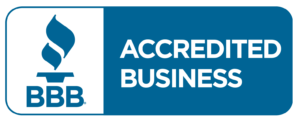
Insurance Fraud
Insurance fraud is an escalating problem that presents a severe challenge to the financial health of insurance companies and policyholders alike. It’s a deceptive act performed with the intent to secure undeserved financial gain.
Fraudulent practices cost the industry billions annually, destabilizing insurance rates and potentially undermining the public’s trust in insurance institutions. For industry leaders like RS Thomas Training Assoc, understanding insurance fraud is critical to maintaining our service integrity and financial solidity.
Common Types of Insurance Fraud
Understanding these common forms of fraud is the first step in developing effective countermeasures.
-
Falsifying Claims
This form of fraud involves policyholders submitting entirely fabricated claims. For instance, a homeowner might report stolen property, or an auto policyholder may claim for an accident that never occurred.
-
Inflating Actual Claims
While the reported incident is real, the claimant exaggerates the extent of damage or loss. For example, after a car accident, the claimant might overstate repair costs or claim for previously existing damage.
-
Misrepresentation on Insurance Applications
Potential policyholders may provide false information during the application process. This could range from hiding pre-existing medical conditions on a health insurance application to understating the mileage on a car insurance form.
-
Staged Accidents
In more extreme cases, fraudsters may deliberately stage incidents, such as car accidents or home fires, to make claims. These activities often involve organized crime groups.
-
Premium Diversion
This involves insurance agents or brokers diverting premium payments for their use instead of forwarding them to the insurance company.
Each of these types of insurance fraud threatens the integrity of the insurance industry and ultimately leads to higher costs for honest policyholders.
Consequences of Insurance Fraud
The impact of insurance fraud extends beyond insurance companies. It contributes to increased premiums for honest policyholders, effectively raising the insurance cost for everyone.
Moreover, insurance fraud can indirectly lead to the growth of illicit economies and potentially fund other criminal activities. The consequences of insurance fraud are far-reaching, and statistics reveal a significant rise in cases over the years.
Detecting and Preventing Insurance Fraud
As insurance fraud becomes more sophisticated, there should be methods to detect and prevent it. Below are key strategies to effectively tackle this issue.
-
Implementing Advanced Technologies
Modern tech tools, such as artificial intelligence (AI) and machine learning, can help analyze vast amounts of data to identify irregular patterns and potential fraud. Predictive analytics can spot claims that have a high probability of being fraudulent.
-
Training and Education
Insurance professionals need to be well-versed in recognizing signs of potential fraud. Regular training programs can equip them with the necessary skills and knowledge to detect and prevent fraudulent activities.
-
Strengthening Internal Controls
Companies can mitigate fraud risks by enforcing strict internal controls. This could include regular audits, stringent hiring practices, and clearly defined procedures for handling claims.
-
Collaborating with Authorities
Working with law enforcement and regulatory agencies can aid investigations and lead to swifter actions against fraudsters.
-
Encouraging Whistleblowing
Organizations can establish secure channels for employees to report suspected fraudulent activities safely. This can encourage more people to come forward without fear of reprisal.
By adopting these strategies, insurance companies can significantly enhance their insurance fraud detection and prevention mechanisms, thereby safeguarding their assets and clients.
Legal and Ethical Considerations
Legally, insurance fraud is a criminal offense punishable by law, often resulting in fines, penalties, or imprisonment. Ethically, it erodes the mutual trust required for insurance operations.
Consequently, organizations are obligated to uphold stringent measures against such unethical practices. At RS Thomas Training Associates Inc., we uphold the highest legal and ethical standards, incorporating them into our training modules and operational framework.
Join the Fight Against Insurance Fraud Today!
Combating insurance fraud is a complex task requiring a multi-faceted approach. It begins with awareness, followed by the implementation of robust detection and prevention strategies. Through effective training and fostering a culture of ethics and transparency, we can collectively make strides in mitigating this widespread issue.
For more information on how RS Thomas Training Associates Inc. can assist your organization in combating insurance fraud, please contact us.

